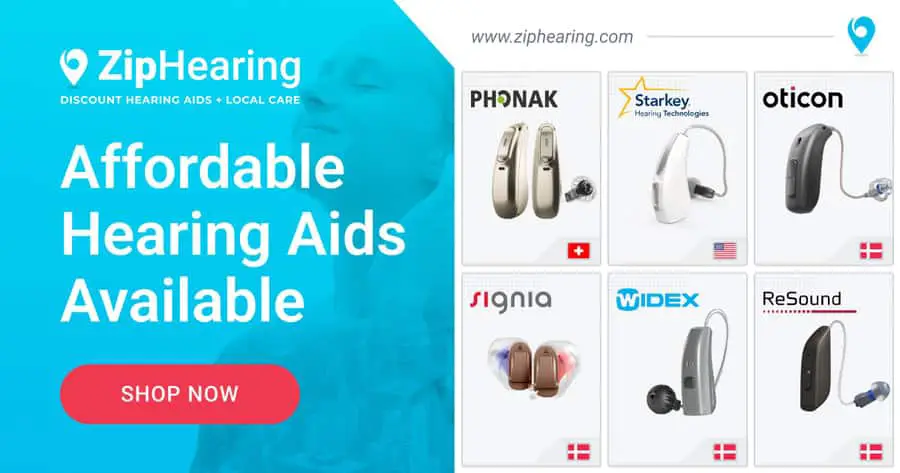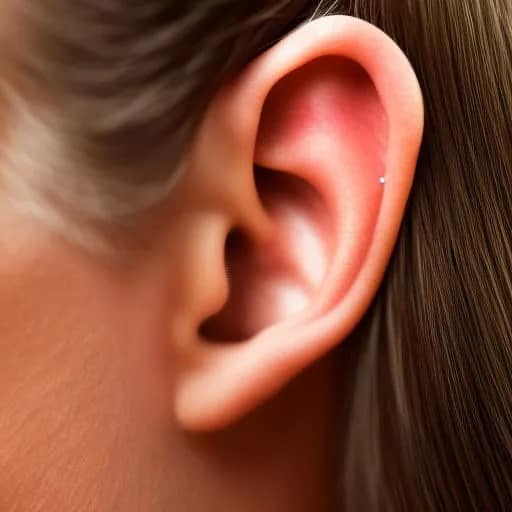Tinnitus is a condition that affects millions of people worldwide. It is characterized by hearing sounds that aren’t present in the environment, such as ringing, buzzing, or hissing. Tinnitus often accompanies hearing loss, but it can also be caused by exposure to loud noise or medication side effects.
According to the American Tinnitus Association, tinnitus affects approximately 50 million people in the United States alone. Given its prevalence, many people with tinnitus are seeking ways to manage their symptoms.
One option that has gained popularity in recent years is the use of over-the-counter (OTC) hearing aids. OTC hearing aids are readily available without a prescription and can be purchased online or in stores. While they are often marketed as a more affordable and accessible alternative to traditional hearing aids, it’s important to understand that they may not be the best solution for everyone with tinnitus.
How Do OTC Hearing Aids Help With Tinnitus?

OTC hearing aids can provide relief to people with tinnitus by amplifying external sounds, making them more audible, and helping to mask the sounds of tinnitus. This can be especially helpful for individuals who experience tinnitus in quiet environments or when trying to fall asleep at night.
One of the key benefits of OTC hearing aids is their affordability and accessibility. They are often significantly less expensive than traditional hearing aids and can be purchased without a prescription. This makes them an attractive option for individuals who may not have access to or cannot afford professional hearing healthcare.
However, it’s important to understand that while OTC hearing aids can provide amplification, they do not have specific tinnitus masking programs. This means that they may not be as effective at managing tinnitus as professionally fit hearing aids with specialized tinnitus management features.
Additionally, OTC hearing aids are not customized to the unique needs of each individual, which can limit their effectiveness. They may not provide the same level of sound quality or noise reduction as professionally fit hearing aids, which can lead to increased frustration and discomfort for people with tinnitus.
While OTC hearing aids can be a good starting point for some individuals, it’s important to understand their limitations and consider other options if they do not provide adequate relief. Seeking the guidance of an audiologist can help you find the right solution for your specific needs and provide access to more advanced hearing aid technology.
What are tinnitus masking programs?
Tinnitus masking programs are specialized features found in some professionally fit hearing aids that can help manage the symptoms of tinnitus when normal amplification does not effectively mask the sound using traditional amplification alone. Tinnitus masking programs use a combination of amplification and specific sound frequencies to help mask the sound of tinnitus and provide relief.
These programs may include features such as white noise, pink noise, or other specific sounds that are designed to match the frequency and intensity of an individual’s tinnitus. They can be adjusted and customized to the individual’s unique needs, making them a more effective solution for tinnitus management than OTC hearing aids.

In addition to masking the sound of tinnitus, these programs may also provide additional benefits such as reducing stress and improving overall sound quality. They can also be used in combination with other forms of tinnitus management, such as counseling or relaxation techniques.
While not all professionally fit hearing aids have tinnitus masking programs, they are an important consideration for individuals seeking relief from tinnitus. Working with an audiologist can help you determine whether tinnitus masking programs are appropriate for your needs and provide access to the latest hearing aid technology for optimal tinnitus management.
Also, see how exercise can affect tinnitus
Can OTC hearing aids provide tinnitus masking programs?
While OTC hearing aids can provide amplification that may help with tinnitus management, they generally do not have specific tinnitus masking programs. This is because tinnitus masking programs require specialized technology and customization to be effective, which is not typically available in OTC hearing aids.
While some OTC hearing aids may be marketed as having features that can help with tinnitus, such as white noise or nature sounds, these are not the same as professionally fit tinnitus masking programs. These features may provide some relief for individuals with tinnitus, but they are not customized to the individual’s specific needs and may not be as effective as more advanced technology.
However, Can You Make It Work
Some OTC device do provide Bluetooth streaming such as the HP Hearing Pro. With Bluetooth streaming option you can use an tinnitus app such Resound Relief or other tinnitus apps. It offers the ability to customized sound therapy, which can be streamed directly to the OTC hearing aid.
Downside of this is that it will drain the batteries much faster than having it built into the hearing aids.
Ask Your Audiologist
Working with an audiologist can help ensure that any underlying medical conditions are properly diagnosed and treated and that the appropriate tinnitus management tools are selected for optimal relief.
While OTC hearing aids may be a good starting point for individuals with mild hearing loss and tinnitus, they may not provide adequate relief for those with more severe or complex hearing needs. Seeking the guidance of an audiologist can help ensure that you receive the appropriate level of care for your unique needs, whether that includes OTC hearing aids or more advanced technology. Be sure to also check out the recommendations for hearing aids.

